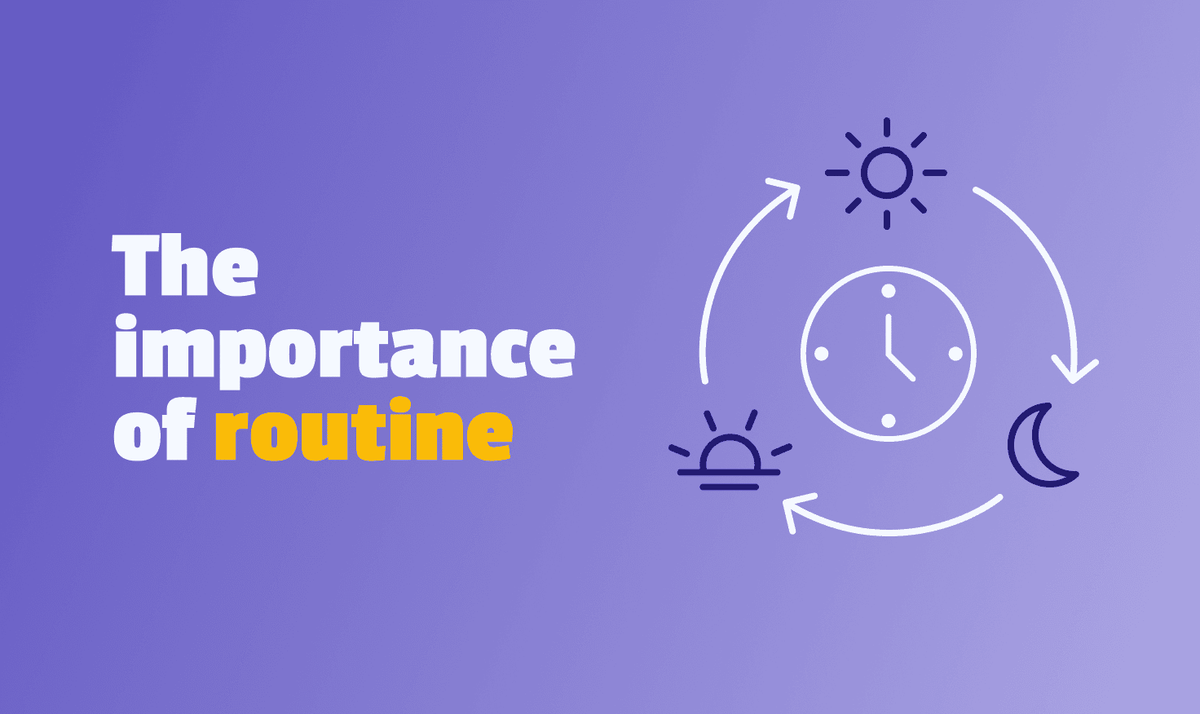
The Importance of Routine: A Path to Balance and Productivity
|
|
Time to read 2 min
Unfortunately, changing your plan will also empty your basket. Are you happy to proceed?
|
|
Time to read 2 min
In today’s fast-moving world, where distractions are constant and demands on our time seem never-ending, having a routine is one of the most effective ways to create balance and increase productivity. Routines might seem unexciting at first, but they offer a powerful way to manage life more efficiently, reduce stress, establish good habits, and bring stability to a hectic day.
A key benefit of routine is the structure it provides. Instead of moving from one task to another without clear direction, a routine gives a sense of purpose and organisation. It allows us to prioritise our time, ensuring we focus on what’s truly important. With the constant distractions of emails, social media, and other demands, routines help us stay focused and keep our attention on what needs to be done.
By setting regular times for activities like waking up, working, or exercising, we reduce the mental strain of deciding what to do next. This frees up energy for more important tasks, making us more productive and efficient.
Routines are essential for developing and maintaining healthy habits. Whether it’s exercising, eating nutritious meals, or taking time for mindfulness, repeating these actions daily strengthens their impact. Over time, these habits become automatic, requiring less mental effort and increasing the chances of sticking to them.
For instance, a morning routine that includes stretching, eating breakfast, and planning the day sets a positive tone. Repeating this routine daily not only improves physical and mental well-being but also makes productivity feel natural rather than forced.
By setting regular times for activities like waking up, working, or exercising, we reduce the mental strain of deciding what to do next. This frees up energy for more important tasks, making us more productive and efficient.
Routines also play a significant role in reducing stress and anxiety. When we have a set plan for our day, we eliminate much of the uncertainty that often leads to feelings of overwhelm. Knowing what to expect creates a sense of control, which is key to managing stress.
During challenging or unpredictable times, routines can provide comfort by giving us a sense of consistency. A good evening routine, for example, can help us unwind and signal to our body that it’s time to sleep, improving rest and recovery. Similarly, a calming morning routine can set the stage for a smooth and stress-free day.
Finding the right balance between work and personal time is a struggle for many. A well-designed routine can help create boundaries between professional duties and personal life, ensuring that both get the attention they deserve. By allocating specific times for work, relaxation, and hobbies, a routine helps us transition between these areas smoothly, without feeling guilty or overwhelmed.
Making time for relaxation is just as important as time for work. When our day includes moments for rest and enjoyment, it helps prevent burnout and keeps us motivated. Without a routine, it’s easy to overwork or procrastinate, which can lead to stress and lower productivity in the long run.
Routines are more than just a series of repetitive actions. They are a way to bring order to our day, cultivate healthy habits, and reduce stress by adding predictability to our lives. While creating a routine may take some initial effort, the long-term benefits of increased balance, improved productivity, and enhanced well-being make it well worth the commitment. With a strong routine, we can achieve more, feel less overwhelmed, and lead a more fulfilling life.